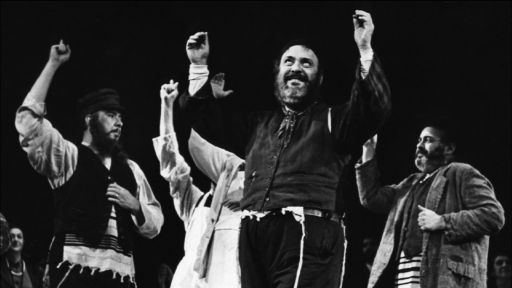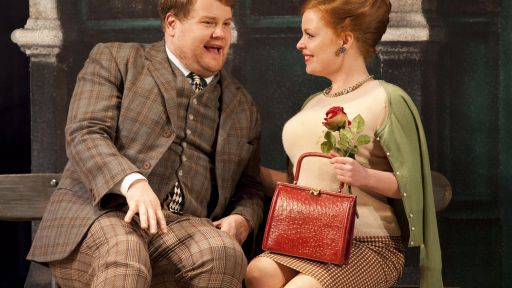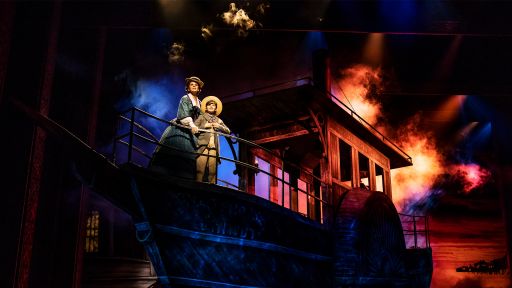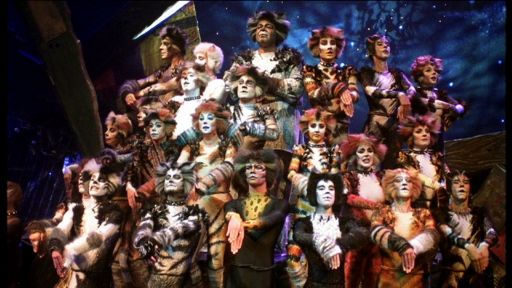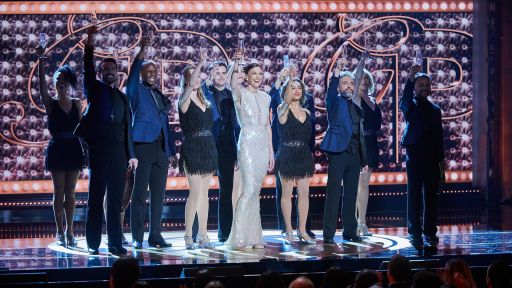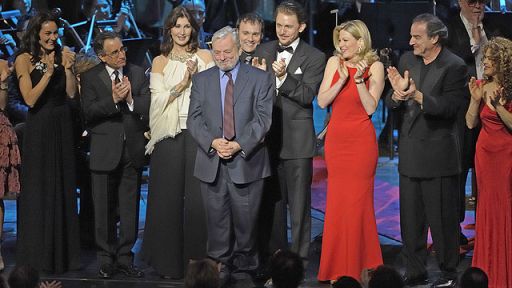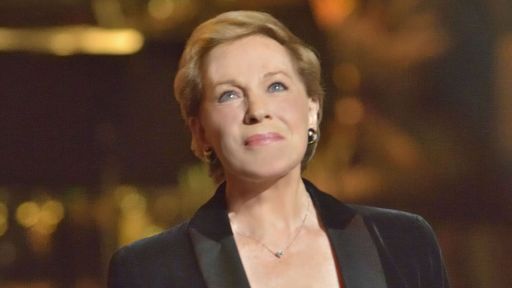As Sir Robin carols merrily to King Arthur in Monty Python’s Spamalot, “In any great adventure, if you don’t want to lose…you won’t succeed on Broadway if you don’t have any Jews.”
Eric Idle’s cheeky lyric, which unfailingly generated knowing guffaws from Broadway audiences, proves to be more than a little grounded in truth, as Broadway Musicals: A Jewish Legacy convincingly attests.
This new 90-minute documentary by Michael Kantor, creator of the Emmy-winning series, Broadway: The American Musical, airs on Great Performances Tuesday, January 1 at 9:30 p.m. on PBS. (Check local listings.)
Great Performances is a production of THIRTEEN for WNET, one of America’s most prolific and respected public media providers. For 50 years, THIRTEEN has been making the most of the rich resources and passionate people of New York and the world, reaching millions of people with on-air and online programming that celebrates arts and culture, offers insightful commentary on the news of the day, explores the worlds of science and nature, and invites students of all ages to have fun while learning.
Broadway Musicals: A Jewish Legacy – narrated by Joel Grey — explores the unique role of Jewish composers and lyricists in the creation of the modern American musical. Featuring interviews and conversations with some of the greatest composers and writers of the Broadway stage, Broadway Musicals: A Jewish Legacy showcases the work of some of the nation’s pre-eminent creators of musical theatre including Irving Berlin, Jerome Kern, George and Ira Gershwin, Lorenz Hart, Richard Rodgers, Oscar Hammerstein II, Kurt Weill, Sheldon Harnick, Jerry Bock, Leonard Bernstein, Stephen Sondheim, Stephen Schwartz, Jule Styne and many others.
Though these remarkable songwriters were purveyors of what we think of today as the Broadway sound, the documentary demonstrates how there were echoes of Jewish strains in many of the works. From “Yiddishkeit” (all things Jewish) on the stages of the Lower East Side at the turn of the century to a wide range of shows including Porgy and Bess, West Side Story and Cabaret, the film explores how Jewish music and ethos informs many of America’s favorite musicals.
Dynamic footage includes performances by stars such as David Hyde Pierce (Spamalot), Matthew Broderick and Kelli O’Hara (Nice Work if You Can Get It), Zero Mostel (Fiddler on the Roof), Betty Comden and Adolph Green (On the Town), Nathan Lane (The Producers), Al Jolson (Sinbad), Fanny Brice (The Great Ziegfeld), Barbra Streisand (Funny Girl), Joel Grey (Cabaret), Dick Van Dyke (Bye Bye Birdie), Danny Kaye (Lady in the Dark), Ethel Merman (Gypsy), and Kristin Chenoweth and Idina Menzel (Wicked).
The film is the first of its kind to examine the phenomenon that, over the 50-year period of its development, the songs of the Broadway musical were created almost exclusively by Jewish Americans. These are the popular songs that our nation took to war, sang to their children at bedtime, and whistled while waiting for the bus; taken in total they comprise the vast majority of what is now commonly referred to as “The American Songbook.”
As historian Phil Furia cites as just one vivid example, Irving Berlin had so assimilated that he went on to “write the most popular Christmas song, ‘White Christmas’…and the most popular Easter song, ‘Easter Parade.’ It’s the Horatio Alger story told in Yiddish.” Berlin’s “God Bless America” became so popular, it nearly replaced the National Anthem.
While Jewish Americans certainly abounded in other areas of the musical theater, their predominance in the area of songwriting was nearly complete, with only the Episcopalian Cole Porter represented as a major figure in the pantheon of America’s greatest composers of Broadway songs. And even Porter, after three Broadway flops, finally ascertained the surefire way to success: “I’m going to write Jewish tunes.” As Andrew Lippa, the composer/lyricist ofThe Addams Family, points out in the film, “Porgy and Bess and Show Boat and Oklahoma! These are ideas that are fictions. What do we make America into? How do we take what we know and make it into America?”
The film features interviews with Arthur Laurents, Sheldon Harnick, John Kander, Andrew Lippa, Stephen Schwartz, Phyllis Newman, Charles Strouse, Harold Prince, Maury Yeston, Mary Rodgers Guettel, Ernie Harburg, Marc Shaiman, David Shire, Stephen Sondheim, Mel Brooks, Stephen Schwartz and many others.
Rare clips include Irving Berlin singing “God Bless America,” rehearsals for Jule Styne and Stephen Sondheim’s Gypsy, and original South Pacific star William Tabbert singing “You’ve Got to be Carefully Taught” with Richard Rodgers at the piano.
The film was produced, written, and directed by Michael Kantor, whose Broadway: The American Musical series was originally viewed by an estimated 15 million people, and won the 2005 Primetime Emmy Award for Outstanding Nonfiction Series. Most recently, Kantor was executive producer of Give Me the Banjo hosted by Steve Martin, and one of the producers of “The Thomashefskys” with Michael Tilson Thomas (Great Performances March 28, 2012). Kantor created Make ‘Em Laugh: The Funny Business of America, the Emmy-nominated six-part documentary series hosted by Billy Crystal that debuted on PBS in January 2009. Other PBS credits include writer, director and producer of “Quincy Jones: In the Pocket” for American Masters, and producer of The West for PBS (Executive Producer Ken Burns).
Broadway Musicals: A Jewish Legacy is an Albert M. Tapper production, and Barbara Brilliant is creator and executive producer. For Great Performances, Bill O’Donnell is series producer, and David Horn is executive producer.
Major funding for this program was provided by the Patty and Jay Baker Foundation, Judith B. Resnick, the Blavatnik Family Foundation, The Barbara and Buddy Freitag Family Fund, The Laurents / Hatcher Foundation, The National Museum of American Jewish History, The Ira and Leonore Gershwin Philanthropic Fund, The Shubert Organization, The Leslie and Roslyn Goldstein Foundation, and The Raymond Tye and Family Charitable Trust.
Major funding for Great Performances is provided by the Irene Diamond Fund, The National Endowment for the Arts, the LuEsther T. Mertz Charitable Trust, Vivian Milstein, The Agnes Varis Trust, the Starr Foundation, The Philip and Janice Levin Foundation, and PBS viewers.
Corporate support is provided by Stuart Weitzman and Family.


